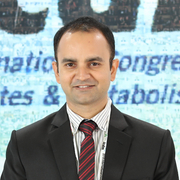- Level Foundation
- Duration 9 hours
- Course by University of Copenhagen
-
Offered by

About
In humanitarian settings, mental ill-health is powerfully inter-connected with other non-communicable diseases (NCDs) such as cardiovascular diseases, cancers, diabetes and chronic respiratory diseases. Integrating mental health and psychosocial support (MHPSS) with NCD prevention and care might therefore be useful, both to be more effective, and to require fewer resources. There is, however, a lack of widely accepted guidelines that take this into account, and this course is intended to draw attention to that issue. Attention to NCDs focused initially on four major disease categories (cardiovascular disease, diabetes, chronic respiratory disease and cancer) and four groups of associated risk factors (unhealthy diets, physical inactivity, tobacco use, and harmful use of alcohol). Recently, mental ill-health has been considered as the fifth NCD and environmental determinant as the fifth risk factor for NCDs – known as ‘5-by-5’ conditions. The course has a threefold aim: i) to explore evidence of interaction between mental ill-health and other NCDs and the role of psychosocial support in humanitarian response; ii) to explore what is being done and where; what level the determinants of health are being addressed at and the integration of mental health and psychosocial support or MHPSS and NCD prevention and care in humanitarian response; and iii) to identify and explore challenges, opportunities and lessons learned for integrating MHPSS and NCD prevention and care in humanitarian response. The MOOC will be led by a course leader from the University of Copenhagen in close collaboration with academic teachers, the Danish Red Cross and IFRC Reference Centre for Psychosocial Support, Copenhagen, Denmark.Modules
1.1 Why a focus on Mental Health and Psychosocial Support
2
Assignment
- 1.1 Quiz
- 1.1a Quiz
4
Videos
- Welcome to the Course
- 1.1 An Overview of Mental Ill-Health and Other NCDs
- 1.1a Importance of Mental Health and Psychosocial Support (MHPSS)
- 1.1b Improving Mental Health of Refugees Through Guided Self-Help
3
Readings
- 1.1 and 1.1a Mandatory Reading and Resources
- Guided Self-help Intervention Reduces Refugees' Psychological Distress
- Optional Reading and Resources
1.2 Pathways Between Mental Ill-Health and Other NCDs
1
Assignment
- 1.2 Quiz
1
Videos
- 1.2 Pathways Between Mental Ill-Health and Other NCDs
2
Readings
- Integrating Mental Health with Other NCDs
- Integrating Mental Health in Care for NCDs: An Imperative for Person-Centered Care
1.3 Agency in Recovery
1
Assignment
- 1.3 Quiz
1
Videos
- 1.3 Agency in Recovery from Mental Ill-Health and other NCDs
2
Readings
- Non-Communicable Diseases in Humanitarian Settings
- Food Aid and Dependency Syndrome in Ethiopia: Local Perceptions
Discussion, Module 1
1
Discussions
- Why integrate MHPSS and NCD prevention, and how to maintain agency
2.1 Guidelines Integrating MHPSS and NCD Prevention and Care
1
Assignment
- 2.1 Quiz
1
Videos
- 2.1 Guidelines Integrating MHPSS and NCD Prevention and Care in Humanitarian Response
2
Readings
- Addressing MHPSS and NCDs in Urban Jordan
- 2.1 Optional Reading and Resources
2.2 Integrating Prevention and Care after Natural Disasters
1
Assignment
- 2.2 Quiz
1
Videos
- 2.2 Integrating MHPSS within NCD Prevention and Care after Natural Disasters
1
Readings
- Management of Chronic NCDs Diseases after Natural Disasters in the Carribbean
2.3 Two Cases from Kenya Red Cross
2
Videos
- 2.3 MHPSS and NCD Prevention and Care in Dadaad Refugee Camp
- 2.3a An Approach to Integrating MHPSS within NCD Prevention and Care: Kenya
1
Readings
- Non Communicable Diseases Kit
Discussion, Module 2
2
Discussions
- Your advise to patients
- Plan an activity that integrates MHPSS and NCD prevention and care
3.1 Lessons Learned - and Difficulties in Implementation
1
Videos
- 3.1 Lessons Learned - and Difficulties in Implementation
3
Readings
- Social Suffering Among Syrian Refugees at an NCD Clinic in Jordan
- Barriers to, and Facilitators of Implementing and Receiving MHPSS programmes
- 3.1 Optional Reading and Resources
3.2 Ethical Dilemmas Regarding Prioritisation of Care
1
Assignment
- 3.2 Quiz
1
Videos
- 3.2 Ethical Dilemmas Regarding Prioritisation of MHPSS and NCDs Prevention and Care
2
Readings
- Bio-ethical Considerations for Public Health in Humanitarian Action
- Cancer in Refugees in Jordan and Syria etween 2009 and 2012
3.3 MHPSS and COVID-19 Pandemic
1
Assignment
- 3.3 Quiz
2
Videos
- 3.3 Emerging Mental Health Issues During the COVID-19 Pandemic - A Nepalese Perspective
- 3.3a MHPSS Considerations During the COVID-19 Pandemic- A Case from Nepal
3
Readings
- COVID-19 and Mental Health: A Review of the Existing Literature
- Addressing Mental Health Needs: An Integral Part of COVID‐19 Response
- 3.3 Optional Reading and Resources
Discussion, Module 3
2
Discussions
- Three barriers and three opportunities
- Ethical dilemmas and how you handle them
Auto Summary
Discover the vital connection between mental health and non-communicable diseases in emergencies with "Chronically Ill in an Emergency: Why Mental Health Matters." This foundational course, led by experts from the University of Copenhagen and Danish Red Cross, spans 540 minutes of engaging content. Available on Coursera, it targets health and fitness enthusiasts, emphasizing the integration of mental health and psychosocial support in humanitarian contexts. Explore evidence, current practices, and challenges in this crucial domain. Start learning with the Starter subscription option.

Bishal Gyawali

Dr. Ajay Risal

Wietse A. Tol, PhD

Saria Hassan

Anouk Boschma

Aebischer Perone Sigiriya

Siri Tellier

Carla Satie Kamitsuji

